
Eli Herschel Wallach was an American film, television, and stage actor from New York City. Known for his character actor roles, his entertainment career spanned over six decades. He received a BAFTA Award, a Tony Award, and an Emmy Award. He also was inducted into the American Theater Hall of Fame in 1988 and received the Academy Honorary Award in 2010.

Harry Dean Stanton was an American actor. In a career that spanned more than six decades, Stanton played supporting roles in films including Cool Hand Luke (1967), Kelly's Heroes (1970), Dillinger (1973), The Godfather Part II (1974), Alien (1979), Escape from New York (1981), Christine (1983), Repo Man (1984), One Magic Christmas (1985), Pretty in Pink (1986), The Last Temptation of Christ (1988), Wild at Heart (1990), The Straight Story (1999), The Green Mile (1999), The Man Who Cried (2000), Alpha Dog (2006), Inland Empire (2006), Rango (2011), The Avengers (2012), and Seven Psychopaths (2012). He had rare lead roles in Paris, Texas (1984) and in Lucky (2017).
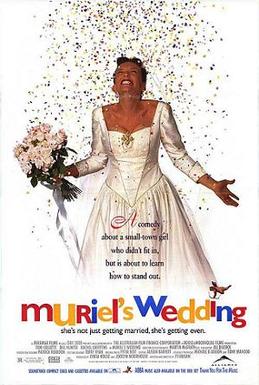
Muriel's Wedding is a 1994 Australian comedy-drama film written and directed by P. J. Hogan. The film, which stars Toni Collette, Rachel Griffiths, Jeanie Drynan, Sophie Lee, and Bill Hunter, focuses on the socially awkward Muriel whose ambition is to have a glamorous wedding and improve her personal life by moving from her dead-end hometown, the fictional Porpoise Spit, to Sydney.

Betty Field was an American film and stage actress.
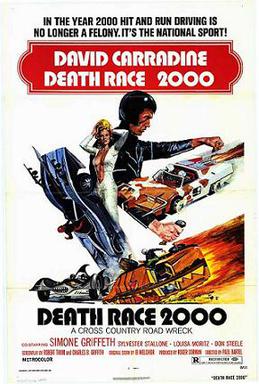
Death Race 2000 is a 1975 American dystopian science-fiction action film directed by Paul Bartel and produced by Roger Corman for New World Pictures. Set in a dystopian American society in the year 2000, the film centers on the murderous Transcontinental Road Race, in which participants score points by striking and killing pedestrians. David Carradine stars as "Frankenstein", the leading champion of the race, who is targeted by an underground rebel movement seeking to abolish the race. The cast also features Simone Griffeth, Sylvester Stallone, Mary Woronov, Martin Kove, and Don Steele.

Stella Stevens was an American actress. She was the mother of actor Andrew Stevens.

Boxcar Bertha is a 1972 American romantic crime drama film directed by Martin Scorsese and produced by Roger Corman, from a screenplay by Joyce H. Corrington and John William Corrington. Made on a low budget, the film is a loose adaptation of Sister of the Road, a pseudo-autobiographical account of the fictional character Bertha Thompson. It was Scorsese's second feature film.
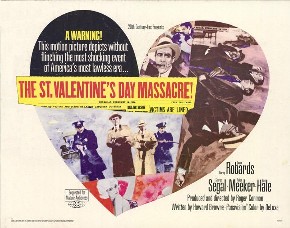
The St. Valentine's Day Massacre is a 1967 American gangster film based on the 1929 mass murder of seven members of Chicago's Northside Gang on orders from Al Capone. The picture was directed by Roger Corman, written by Howard Browne, and starring Jason Robards as Capone, Ralph Meeker as Moran, George Segal as Peter Gusenberg, and David Canary as Frank Gusenberg.

Tough Guys is a 1986 American action comedy film directed by Jeff Kanew and starring Burt Lancaster, Kirk Douglas, Eli Wallach, Charles Durning, Dana Carvey, and Darlanne Fluegel. It is the eighth film of Touchstone Pictures, and the final film to be released from Douglas's Bryna Productions.

Night and the City is a 1992 American neo-noir crime drama film and a remake of the 1950 film noir of the same name, itself an adaptation of Gerald Kersh's 1938 novel. The film stars Robert De Niro and Jessica Lange and is directed by Irwin Winkler from a script by Richard Price.

Easy Riders, Raging Bulls: How the Sex-Drugs-and-Rock 'N Roll Generation Saved Hollywood is a book by Peter Biskind, published by Simon & Schuster in 1998, about ostensibly the 1960s and 1970s Hollywood, a period of American film known for the production of such films such as The Godfather,The Godfather Part II,The French Connection,Chinatown,Taxi Driver,Jaws,Star Wars,The Exorcist, and The Last Picture Show. The title is taken from films which bookend the era: Easy Rider (1969) and Raging Bull (1980).

Skidoo is a 1968 American comedy film directed by Otto Preminger, starring Jackie Gleason, Carol Channing, Frankie Avalon, Fred Clark, Michael Constantine, Frank Gorshin, John Phillip Law, Peter Lawford, Burgess Meredith, George Raft, Cesar Romero, Mickey Rooney, and Groucho Marx playing a top mobster named "God". It was written by Doran William Cannon and released by Paramount Pictures on December 19, 1968. The screenplay satirizes late-1960s counterculture lifestyle and its creature comforts, technology, anti-technology, hippies, free love and then-topical use of the drug LSD.

Gas-s-s-s is a 1970 American post-apocalyptic black comedy film directed by Roger Corman, and produced and released by American International Pictures. The plot follows survivors of an accidental military gas leak involving an experimental agent that kills everyone on Earth over the age of 25. The subtitle alludes to the 1968 quote "it became necessary to destroy the town to save it" attributed to a U.S. Army officer after the Battle of Bến Tre in Vietnam.
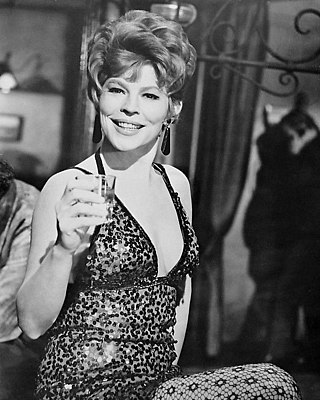
Anne Jackson was an American actress of stage, screen, and television. She was the wife of actor Eli Wallach, with whom she often co-starred. In 1956, she was nominated for the Tony Award for Best Featured Actress in a Play for her performance in Paddy Chayefsky's Middle of the Night. In 1963, she won an Obie Award for Best Actress for her performance in two Off-Broadway plays, The Typists and The Tiger.
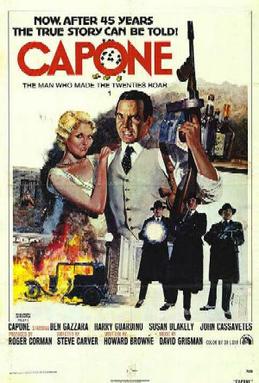
Capone is a 1975 American biographical crime film directed by Steve Carver and produced by Roger Corman, based on the life of notorious 20th-century gangster Al Capone. It stars Ben Gazzara in the title role, along with Harry Guardino, Susan Blakely, John Cassavetes, and Sylvester Stallone in an early film appearance.

Who's Been Sleeping in My Bed? is a 1963 American comedy film directed by Daniel Mann and starring Dean Martin, Elizabeth Montgomery, and Carol Burnett.

Mistress is a 1992 American comedy-drama film directed by Barry Primus in his directorial debut, written by Primus and J. F. Lawton, and starring Robert De Niro, Danny Aiello, Eli Wallach, Robert Wuhl and Martin Landau.

Sweet Kill is a 1973 B-movie written and directed by future Academy Award winner Curtis Hanson. The film was Hanson's directorial debut and was executive-produced by Roger Corman. It stars 1950s heartthrob Tab Hunter and was the last film of actress Isabel Jewell.

A Lovely Way to Die is a 1968 American crime neo noir directed by David Lowell Rich and starring Kirk Douglas, Sylva Koscina, Eli Wallach and Kenneth Haigh.
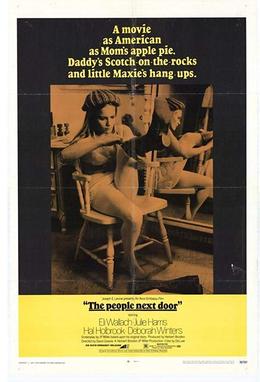
The People Next Door is a 1970 American drama film directed by David Greene and starring Eli Wallach and Julie Harris. JP Miller adapted the screenplay from his 1968 CBS Playhouse teleplay.



















